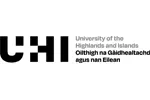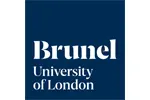Created by industry-experts and shaped by regional engineering employers, this BEng (Hons) Engineering Design programme will equipped you with the knowledge and skillset you’ll need to be able to identify solutions and solve complex and interesting engineering challenges.
With sustainability, innovation, and emerging technologies at the core of this course’s curriculum, you’ll graduate with a crucial industry insight, that future employers are looking for.
Why study BEng (Hons) Engineering Design at BNU?
Industry involvement
On this BEng (Hons) Engineering Design degree, you’ll have the opportunity to engage with industry-professionals and practitioners, as well as our working alumni. You’ll benefit from guest lectures, masterclasses and workshop sessions, live briefs, site visits and where possible, a contribution to the assessment of your work.
This course has been developed to mirror today’s Engineering Design industry and continues to work closely with its own Industry Advisory Board to ensure the curriculum and teaching is relevant. Working with professionals allows us to ensure the course will help you to develop the skills and knowledge the industry is looking for. You’ll engage in real-world, practical activities that will prepare you for a successful career.
Opportunities for you
Engineering Design gives you the opportunity to learn a broad base of engineering concepts and technologies, which are not only applicable to a wide range of engineering sectors and employers but are also highly in demand.
Graduating from this course will see you leave with the necessary skills to kick-start a career within this industry. From using a sound, evidence-based approach in applying innovative technologies, processes and systems to transform ideas into fully functioning real products to being able to identify financial, environmental, quality, statutory and safety objectives.
Facilities
During your time on the course you’ll have access to our state-of-the-art and brand-new Engineering and the Built Environment facilities, including;
- Building Services Lab, to include Air Conditioning Trainer, Hydro-electric Turbine and Photovoltaic Cells
- Concrete & Geotechnical Testing Lab, to include Slump Test, Concrete Density, Porosity, Flexural and Compression Testing, Soil Shear, Grading and Moisture Tests.
- Fluids/Thermo/Hydraulics Lab, to include Pneumatics Workstation, Digital Hydraulic Bench, Axial Flow Pump and Surface Tension Balance.
- Mechanical/Structural Lab, to include different Structural Test kits that will measure Deflection of Beams & Cantilevers, Bending Stress and Bending Moments
- Electronics and High Voltage Lab, to include Power and Energy Electronics, Modern Electrical Machine Systems, Three Phase Power Systems
- Automation/Manufacturing/General Workshop, to include 3D Metal Printer, Hardness Tester, Universal Tensile Testing, Impact Tester and and Dobot Smart Industry 4.0 Workstation
- CAD Lab and Design Studio
- Immersive Virtual Reality Lab
Study Options
This programme runs as a full-time course, structured across three years. We also offer the full-time course with an additional placement year in your third year. This four-year option allows you to get hands-on within the industry, before you complete your studies.
We also offer this course as a four-year Foundation Year programme. The Foundation Year will allow you to develop your academic study skills and build confidence in your abilities, identifying your own strengths and development needs for progression onto an undergraduate programme. If you choose to study the placement year, as well as the foundation option, the course will span over five years.
What will I learn?
Whether you want to explore transportation industries: such as rail, aeronautical and automotive, & infrastructure engineering services, or clean energy oil and gas industries, as an engineer you’ll play a crucial role in the shaping of our future world.
This practical and hands-on engineering design course incorporates innovation and creativity at every stage of learning. During your time with us you’ll gain an extensive knowledge and critical understanding of professional ethics, social and cultural values in engineering. With a focus on sustainability, you’ll learn skills to help you identify and solve engineering problems, whilst meeting the needs of the industry and the forward-thinking sector.
Our specialist modules cover a broad range of areas to ensure you gain a holistic overview of the industry, from emerging and sustainable technologies, computer aided design and simulation and thermofluids, to electromechanical systems, robotics, automation and sustainable materials.
You’ll also delve into the theoretical side of engineering, ensuring you gain an end-to-end knowledge base. This will include looking at processes, finance, leadership skills and project management.
At all levels of the course, employability skills have been built into the programme to prepare you for work experience opportunities and to help you secure employment upon graduating. These activities will include practitioner visits, CV preparation, mock interviews, and production of a personal portfolio. Throughout the course you’ll have the opportunity to work on live briefs set by engineering employers, all of which can later be added to your portfolio.
How will I be taught and assessed?
On this engineering design course, a range of teaching methods and authentic assessment strategies will be used, we ensure an emphasis is put on both practical and traditional teaching approaches.
Laboratory sessions and a range of practical activities will build upon previous learning from lectures and tutorials.
Traditional forms of assessment include;
- Written assignments
- Report
- Portfolio and digital models
- In-class assignments
- Computer-based test
- Set Presentations (for example, poster and oral)
- Proposal
- Dissertation
You’ll study in a close-knit tutor group where everyone’s input is recognised and valued. Not only will you make friends for life, you’ll also make important connections that will last through your career, and you’ll form a network, just like you’d find in the working-world.






